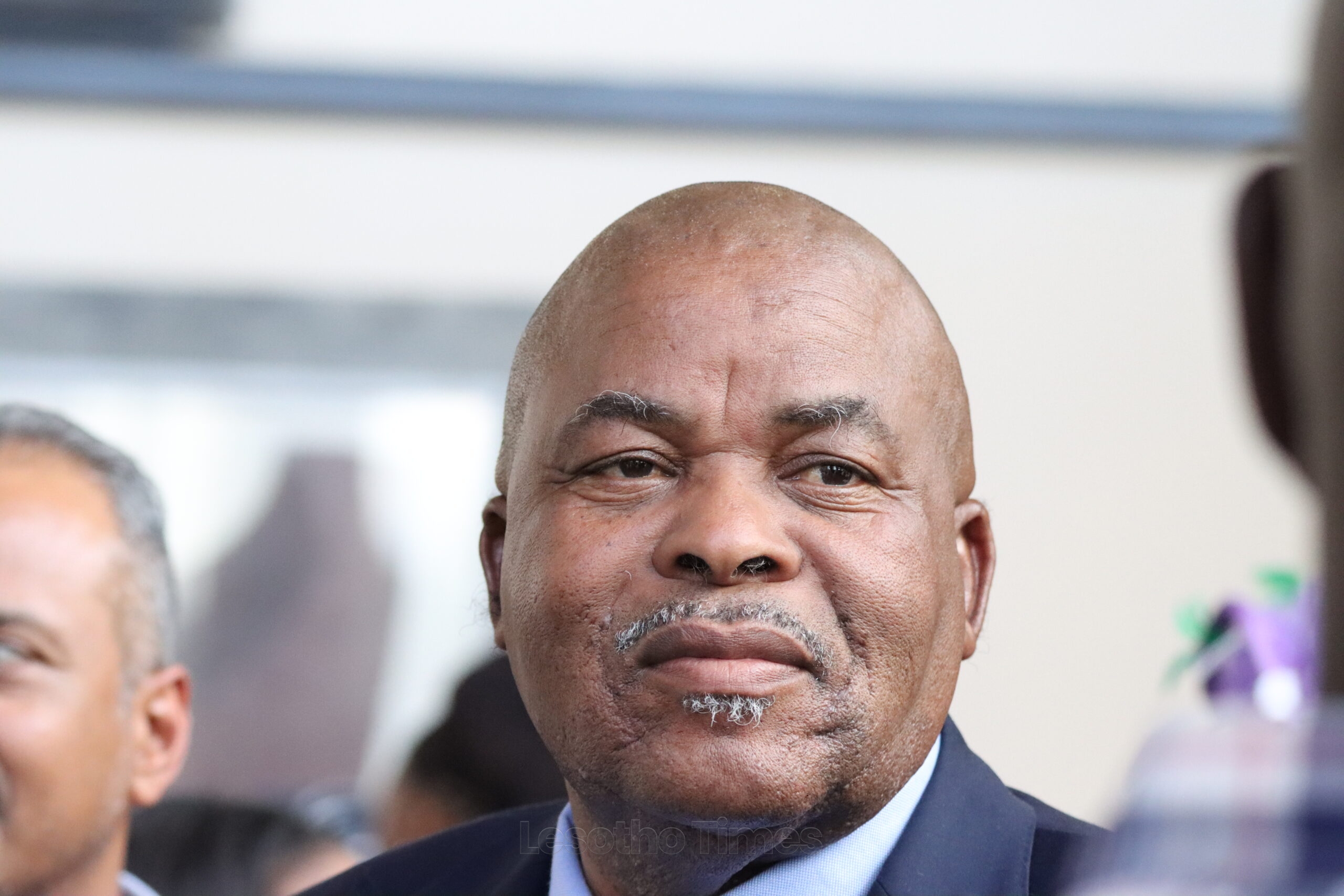…cancel all existing firearm licences
…as it amps efforts to uproot and combat gun violence
Staff Reporters
LOCAL Government, Chieftainship, Home Affairs and Police minister Lebona Lephema, says his ministry intends to recall all licensed firearms as the government amps up its resolve to uproot and combat the ever-escalating violent crime levels.
Cancelling all the licences issued on firearms would enable the government to improve the security features on firearm licences, including digitizing them, to halt any abuses of the licences in future.
Mr Lephema lamented the fact that Basotho were dying “through the barrel of a gun every day”. Many of these deaths were a result of licensed firearms being in the wrong hands.
Mr Lephema was speaking at Prime Minister Sam Matekane’s Citizen Engagement Programme at the ‘Manthabiseng Convention Centre on Tuesday.
The premier used the occasion to unveil the long-awaited report on his first 100 days in office by way of ministers making presentations on progress made in their respective ministries within that period after the formation of his new government late last year.
The decision to recall firearms comes after the police imposed a moratorium on sales and issuance of new firearm licenses.
Mr Lephema told the audience comprising development partners, media, civic groups, and ordinary members of the public, that “the cancellation and recall would serve the purpose, of helping reform processes, through which licenses were issued”.
Mr Lephema said his ministry intended to “develop a system that would improve security features of firearm licenses, to ensure that all licensees are legal”, noting that currently licenses were just signed with a pen, which opened floodgates to crime and ownership of illegal firearms.
“The police managed to temporarily halt the sales of firearms. We are going to recall all licensed firearms and their licenses. We have come to the realisation that firearm licenses features must be improved and made more secure,” Mr Lephema said.
“We want to upgrade to a level where our firearm licenses are digitalised. Currently our licenses are just signed with a pen. We must establish that people who have firearms are legally licensed. Basotho in their numbers, are dying through the barrel of a gun.”
How to obtain a firearm licence
Following Minister Lephema’s remarks, the Lesotho Times conducted an independent investigation to establish the procedure of applying for a firearm license.
We also sought to ascertain how the police Criminal Investigations Division (CID) verifies the suitability of applicants to own firearms.
We established that all firearms licences are issued by a department within the CID.
An applicant is supposed to get a referral letter from the principal chief which is then passed on to the police. The letter must be accompanied by a list of assets the applicant wants to protect as well as their proof ownership of those assets. All other valuable belongings of the applicant must also be stated.
“The head of police of the district of the applicant, will then send out an intelligence team to go and vet the applicant, and ensure that the list of belongings that the person claims to own is accurate, as well as to establish from the applicant’s neighbours the kind of person he or she is,” an official, who explained the process on condition of anonymity, said.
“For instance, it will be established if he/she is a peaceful person who is able to coexist with other people and maintain good relations. This is done to determine whether the applicant is potentially violent, and if it is safe to issue him or her with a license to own a firearm.”
The vetting report, the official said, will then be attached to the application, after which the District Commissioner of Police (Dispol) will then refer it to the regional level, be it central, south, or north, with a recommendation, which could be an approval or disapproval.
“A lot of deliberations are made, after which recommendations will be given to the chairman of a board (of senior police officers) for approval. It is also his (chairman’s) discretion whether to approve or reject some applications in consultations with the board. For instance, a vetting officer might recommend, for various reasons, that an applicant not be allowed to own a gun. But the board, after interrogating the report itself, might decide to go ahead and issue the license. It is vested in the board to decide,” the source said.
Other considerations for issuing licences include questions about whether or not an applicant has a criminal record. For ex-convicts who have served time, their behaviour after they have been released are also considered. Those who commit crimes within five years of being released from jail are disqualified.
“After all, some ex-convicts are repentant individuals who always work with the police giving them tip-offs and are working with their respective communities to fight crime,” the source said.
Although the criteria of getting a firearm licence appears quite stringent on paper, it is not being followed in spirit and form. Criminals still have wide access to firearms while corrupt police officers are said to duplicate firearm licences.
As a result, Lesotho has become the sixth most homicidal nation in the world and number one in Africa despite having a small population of only two million people. Even corrupt and war ridden failed states like South Sudan, the Democratic Republic of the Congo (DRC), Central African Republic (CAR), Mozambique, Burkina Faso, Mali, among others, fare better than Lesotho in the World Population Review’s homicide rankings.


